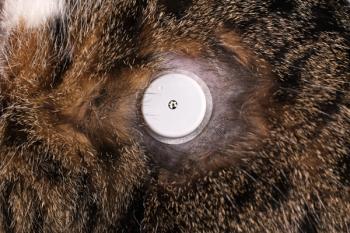
FDA approves first equine injectable for fever control
Zimeta has been associated with rapid and effective reduction of pyrexia in horses.
Biopharmaceutical company Kindred Biosciences announced this week that the FDA has approved Zimeta (dipyrone injection) for the control of fever (pyrexia) in horses.
Zimeta, which belongs to the pyrazolone class of nonsteroidal anti-inflammatory drugs (NSAIDs), is the first FDA-approved injectable medication for equine fever control. It is intended for intravenous injection once or twice daily (no more frequently than every 12 hours) for up to three days at a dose of 30 mg/kg (13.6 mg/lb). The drug may be readministered for up to three days based on recurrence of fever.
In a well-controlled clinical study, Zimeta administration resulted in rapid and effective fever reduction in horses with naturally occurring fever, according to
Zimeta is for use in horses only; its use in breeding or in pregnant or lactating mares has not been evaluated. Zimeta is not for use in humans due to the potential risk for agranulocytosis (see sidebar). Additionally, the drug is not for use in horses intended for human consumption or in food-producing animals, including lactating dairy animals.
Dipyrone: Not for people anymore
In several countries, including the United States, people are prohibited from taking dipyrone (also known as metimazole). In 1977, the FDA withdrew its approval of all dipyrone-containing drugs for use in humans after reports of agranulocytosis in treated patients surfaced. Agranulocytosis is a serious and potentially life-threatening blood cell deficiency that can increase one's vulnerability to infection.
Although no data indicate that agranulocytosis occurs in horses treated with Zimeta, owners, handlers and veterinary caretakers should take the necessary precautions to prevent accidental self-injection.
As a class, NSAIDs have been associated with gastrointestinal, renal and hepatic toxicity as well as coagulopathies. The most commonly reported adverse reactions in clinical trials for Zimeta include gastric ulcers, abnormal feces and prolongation of coagulation parameters Horses being treated with Zimeta should be monitored for signs of lack of appetite, diarrhea or unexplained bleeding. Caution should also be used in horses at risk for hemorrhage.
To find out more about his drug, click
Newsletter
From exam room tips to practice management insights, get trusted veterinary news delivered straight to your inbox—subscribe to dvm360.




